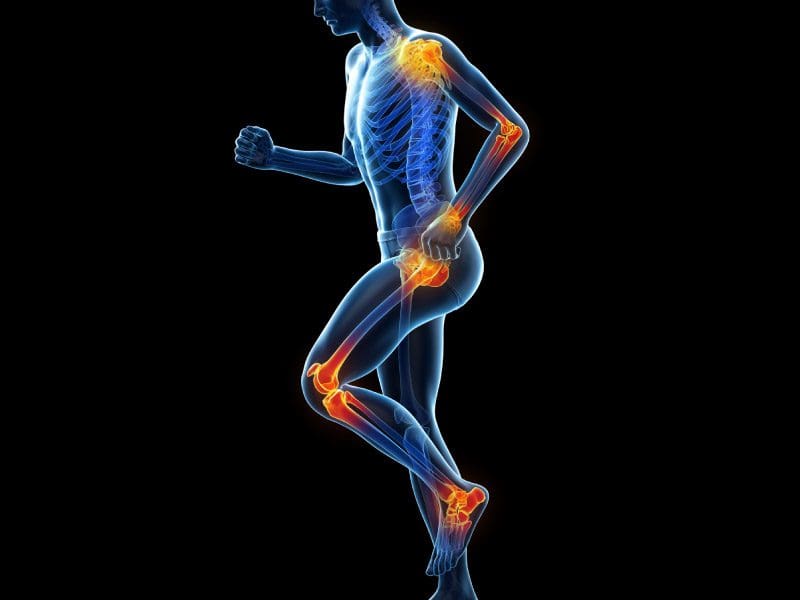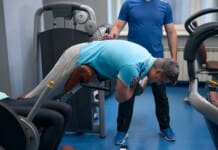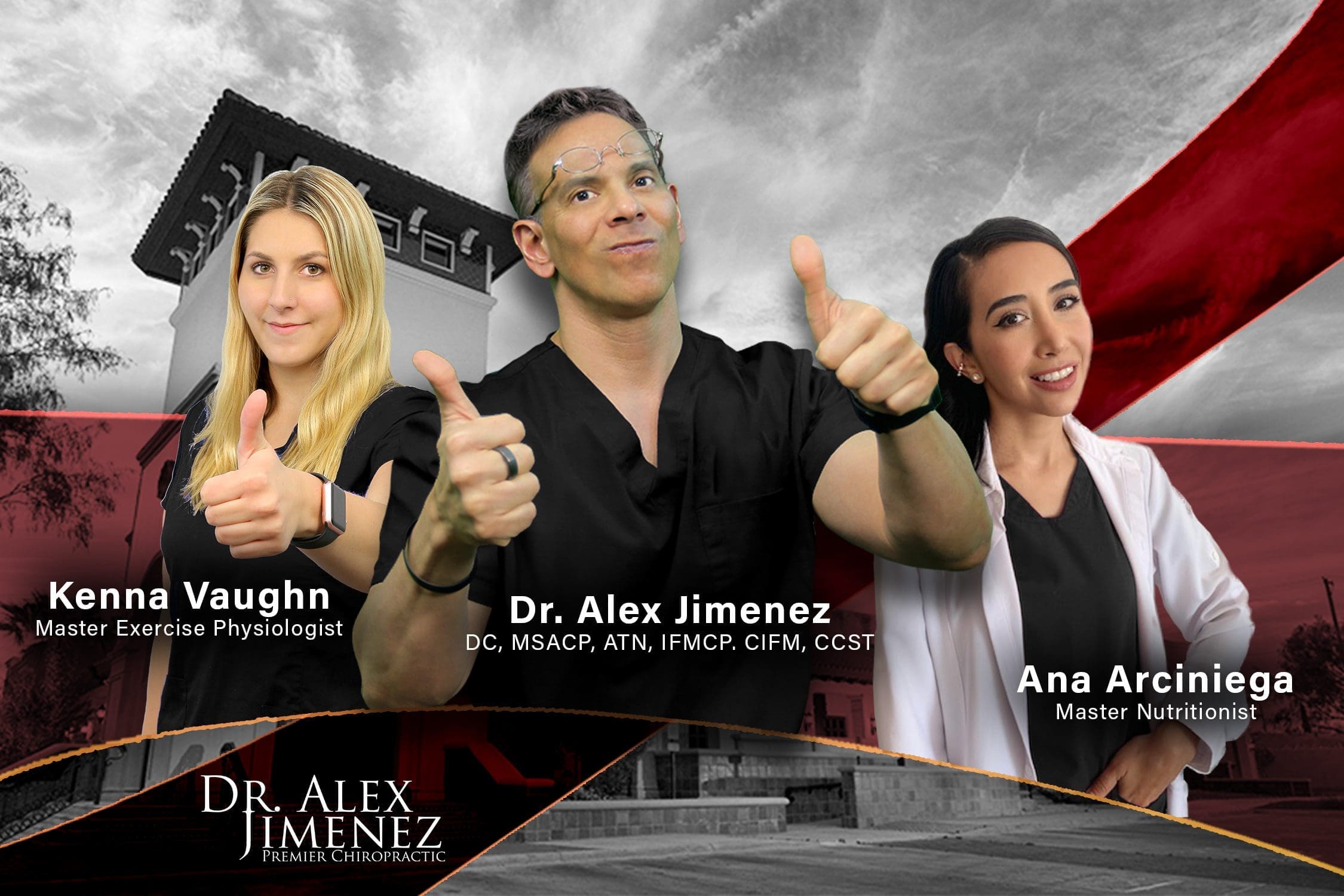Table of Contents
Introduction
When the body sustains an injury or a virus, the immune system springs into action by sending out cytokines to the affected area and causes a process known as inflammation. Inflammation in the body is good for eliminating numerous pathogens, damaged cellular structures, viruses, or infections. Inflammation causes the affected area to be warm to the touch and causes swelling that will decrease in the recovery state. However, inflammation in the body can be positive and negative depending on the severity of the injury. When inflammation is in its chronic form, it can cause muscle and tissue damage to the musculoskeletal system while being associated with other conditions in the body’s system, like the gastrointestinal, nervous, and reproductive systems. In today’s article, we will focus on how chronic inflammation affects the body’s muscles and how the MET technique can help relieve muscle inflammation in soft tissues. We utilize valuable information about our patients to certified medical providers who use methods like MET combined with manual stretching therapy to reduce inflammation associated with musculoskeletal conditions. We encourage patients by referring them to our associated medical providers based on their findings. We support that education is a marvelous way to ask our providers the most interesting questions at the patient’s acknowledgment. Dr. Alex Jimenez, D.C., incorporates this information as an educational service. Disclaimer
How Inflammation Works In The Body
Have you been experiencing pain in different muscle areas in your body? What about dealing with aches and pains in the morning? Or do your muscles feel tight and hurt more when you bend to pick up an object? Many of these issues affecting the musculoskeletal system are associated with inflammation. As stated earlier, inflammation can positively and negatively impact the body depending on the severity of the injury. Inflammation is a natural healing process for the body that is characterized by redness, swelling, and heat to the soft tissues so that they can be repaired within a few days to weeks. Studies reveal that when the body deals with various pathogenic factors, the immune system releases inflammatory cytokines to the pathogenic factor and starts to heal the affected area.
Inflammation helps the sprained muscle tissues heal naturally and can be healed within 2-3 days to a few weeks in its acute stage. However, when inflammation is in a chronic state of the body, it causes damage to not only the affected muscle and tissue areas but can even affect the surrounding ligaments, joints, and vital organs. A great example is when a person has a sprained ankle, the affected area swells up, becomes red, and is tender to the touch when its acute inflammation. For chronic inflammation, the body is in constant pain that can be slow and long, and it takes several months to years to heal. Another great example would be gut disorders associated with chronic muscle inflammation.
What Does Chronic Inflammation Do To The Body’s Muscles?
So what does chronic inflammation do to the body’s muscles, and how does it affect the surrounding structures? According to research studies, chronic inflammation has been associated with musculoskeletal disorders that can cause an impact in reducing muscle strength and muscle mass. When this happens, it can cause the muscles to weaken and generate the surrounding muscle groups to compensate by working harder. This leads to misalignment in the body and causes overlapping risk profiles in the various muscle groups. In “Clinical Applications of Neuromuscular Techniques,” Dr. Leon Chaitow, N.D., D.O., and Dr. Judith Walker DeLany, L.M.T., stated that numerous factors associated with inflammation could impact how a person sleeps, eat, and function throughout the day. The book also noted that when pathogens can disrupt the natural cycling between the defensive and repair modes of inflammation correlating with the immune system can be disrupted in ill health. A chronic inflammatory cytokine shift could lock the body into a pro-inflammatory state.
Reducing Inflammation In The Body- Video

Have you been dealing with constant inflammation in your muscles? Do you feel muscle weakness or strain when you are in motion? Or do other portions of your body starts to feel aches or pains? Many of these issues are associated with chronic inflammation affecting the musculoskeletal system. Inflammation is part of the immune system’s natural defense that sends cytokines to the affected area and starts the healing process. Inflammation has two patterns: acute and chronic. Acute inflammation is associated with sprains from a twisted ankle or wrist, a sore throat, or an infection. While at the same time, chronic inflammation is associated with muscle pain, sleep disorders, or rashes that affect the skin. When the body is suffering from chronic inflammation, it can be due to many overlapping factors that can cause the body to be in pain. Luckily numerous treatments can help the body and reduce the effects of inflammation. The video above explains how incorporating an anti-inflammatory diet and chiropractic care can help reduce chronic inflammation effects in the body.
The MET Technique & Muscle Inflammation
Regarding chronic muscle inflammation, the musculoskeletal system deals with numerous symptoms like pain, stiffness, and weakness associated with various pathological factors. Chronic inflammation can develop from insufficient sleep, eating high-cholesterol foods, not getting enough exercise, and being stressed, which can affect the body and its systems. Fortunately, numerous available treatments can reduce inflammation. Studies reveal that treatments like MET therapy can help reduce pain correlated with muscle inflammation and increase the range of motion to the joints. The body can reduce the effects of chronic inflammation and keep it under control when MET therapy is combined with an anti-inflammatory diet. Also, practicing mindfulness can help reduce the stress contributing to chronic inflammation, which can help relax the body and naturally heal itself. Making these small changes can benefit many individuals trying to be healthier.
Conclusion
When it comes to inflammation in the musculoskeletal system, it can lead to overlapping risk profiles that can cause the body to be misaligned and have many pain-like symptoms that can make a person’s life miserable. Since inflammation is part of the immune system’s natural response to fight off infections, incorporating anti-inflammatory diets and MET stretching can help reduce the effects of inflammation and help the body heal itself from the inside out.
References
Chaitow, Leon, and Judith Walker DeLany. Clinical Applications of Neuromuscular Techniques. Churchill Livingstone, 2003.
Chen, Linlin, et al. “Inflammatory Responses and Inflammation-Associated Diseases in Organs.” Oncotarget, U.S. National Library of Medicine, 14 Dec. 2017, https://www.ncbi.nlm.nih.gov/pmc/articles/PMC5805548/.
Thomas, Ewan, et al. “The Efficacy of Muscle Energy Techniques in Symptomatic and Asymptomatic Subjects: A Systematic Review.” Chiropractic & Manual Therapies, U.S. National Library of Medicine, 27 Aug. 2019, https://www.ncbi.nlm.nih.gov/pmc/articles/PMC6710873/.
Tuttle, Camilla S L, et al. “Markers of Inflammation and Their Association with Muscle Strength and Mass: A Systematic Review and Meta-Analysis.” Ageing Research Reviews, U.S. National Library of Medicine, 26 Sept. 2020, https://pubmed.ncbi.nlm.nih.gov/32992047/.
Disclaimer
Professional Scope of Practice *
The information herein on "Muscle Inflammation Relieved By The MET Technique" is not intended to replace a one-on-one relationship with a qualified health care professional or licensed physician and is not medical advice. We encourage you to make healthcare decisions based on your research and partnership with a qualified healthcare professional.
Blog Information & Scope Discussions
Welcome to El Paso's Premier Wellness and Injury Care Clinic & Wellness Blog, where Dr. Alex Jimenez, DC, FNP-C, a Multi-State board-certified Family Practice Nurse Practitioner (FNP-BC) and Chiropractor (DC), presents insights on how our multidisciplinary team is dedicated to holistic healing and personalized care. Our practice aligns with evidence-based treatment protocols inspired by integrative medicine principles, similar to those found on this site and our family practice-based chiromed.com site, focusing on restoring health naturally for patients of all ages.
Our areas of multidisciplinary practice include Wellness & Nutrition, Chronic Pain, Personal Injury, Auto Accident Care, Work Injuries, Back Injury, Low Back Pain, Neck Pain, Migraine Headaches, Sports Injuries, Severe Sciatica, Scoliosis, Complex Herniated Discs, Fibromyalgia, Chronic Pain, Complex Injuries, Stress Management, Functional Medicine Treatments, and in-scope care protocols.
Our information scope is multidisciplinary, focusing on musculoskeletal and physical medicine, wellness, contributing etiological viscerosomatic disturbances within clinical presentations, associated somato-visceral reflex clinical dynamics, subluxation complexes, sensitive health issues, and functional medicine articles, topics, and discussions.
We provide and present clinical collaboration with specialists from various disciplines. Each specialist is governed by their professional scope of practice and their jurisdiction of licensure. We use functional health & wellness protocols to treat and support care for musculoskeletal injuries or disorders.
Our videos, posts, topics, and insights address clinical matters and issues that are directly or indirectly related to our clinical scope of practice.
Our office has made a reasonable effort to provide supportive citations and has identified relevant research studies that support our posts. We provide copies of supporting research studies upon request to regulatory boards and the public.
We understand that we cover matters that require an additional explanation of how they may assist in a particular care plan or treatment protocol; therefore, to discuss the subject matter above further, please feel free to ask Dr. Alex Jimenez, DC, APRN, FNP-BC, or contact us at 915-850-0900.
We are here to help you and your family.
Blessings
Dr. Alex Jimenez DC, MSACP, APRN, FNP-BC*, CCST, IFMCP, CFMP, ATN
email: coach@elpasofunctionalmedicine.com
Multidisciplinary Licensing & Board Certifications:
Licensed as a Doctor of Chiropractic (DC) in Texas & New Mexico*
Texas DC License #: TX5807, Verified: TX5807
New Mexico DC License #: NM-DC2182, Verified: NM-DC2182
Licensed as a Multi-State Advanced Practice Registered Nurse (APRN*) in Texas & Multistate
Multistate Compact RN License by Endorsement (42 States)
Texas APRN License #: 1191402, Verified: 1191402 *
Florida APRN License #: 11043890, Verified: APRN11043890 *
* Prescriptive Authority Authorized
ANCC FNP-BC: Board Certified Nurse Practitioner*
Compact Status: Multi-State License: Authorized to Practice in 40 States*
Graduate with Honors: ICHS: MSN-FNP (Family Nurse Practitioner Program)
Degree Granted. Master's in Family Practice MSN Diploma (Cum Laude)
Licenses and Board Certifications:
DC: Doctor of Chiropractic
APRNP: Advanced Practice Registered Nurse
FNP-BC: Family Practice Specialization (Multi-State Board Certified)
RN: Registered Nurse (Multi-State Compact License)
CFMP: Certified Functional Medicine Provider
MSN-FNP: Master of Science in Family Practice Medicine
MSACP: Master of Science in Advanced Clinical Practice
IFMCP: Institute of Functional Medicine
CCST: Certified Chiropractic Spinal Trauma
ATN: Advanced Translational Neutrogenomics
Memberships & Associations:
TCA: Texas Chiropractic Association: Member ID: 104311
AANP: American Association of Nurse Practitioners: Member ID: 2198960
ANA: American Nurse Association: Member ID: 06458222 (District TX01)
TNA: Texas Nurse Association: Member ID: 06458222
NPI: 1205907805
| Primary Taxonomy | Selected Taxonomy | State | License Number |
|---|---|---|---|
| No | 111N00000X - Chiropractor | NM | DC2182 |
| Yes | 111N00000X - Chiropractor | TX | DC5807 |
| Yes | 363LF0000X - Nurse Practitioner - Family | TX | 1191402 |
| Yes | 363LF0000X - Nurse Practitioner - Family | FL | 11043890 |
| Yes | 363LF0000X - Nurse Practitioner - Family | CO | C-APN.0105610-C-NP |
Dr. Alex Jimenez, DC, APRN, FNP-BC*, CFMP, IFMCP, ATN, CCST
My Digital Business Card
















